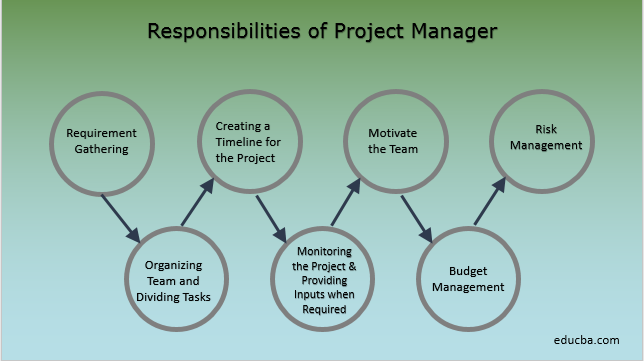
SHRM-CP is a globally recognized certification, and it is valued highly by employers and individuals. For the certification to be awarded, you must have certain educations and relevant work experience. Learn more about the requirements of the certificate and how to apply on the SHRM site. You don't need to have a degree or certificate in Human Resources, but you can get certification with similar work experience.
Qualifications
You can work in any industry that requires high skill and expertise with SHRM certification. There are two levels: the SHRM CP (or SHRM -SCP) certification. If you're interested in applying for either of these certifications, you should make sure that you meet the requirements for the specific job position for which it is being applied.
It takes extensive education and experience to obtain the SHRMCP certification. It is recognized by peers and can increase your salary. Your initials are a sign of expertise. This will give you an edge when networking.

Costs
The cost of SHRM certification exams varies depending on the type of certification desired. The SHRM-CP and SHRM-SCP certification exams cost about $475 USD for non-members and $525 USD for members. You can find many discount options on the SHRM website. Non-members can get a $100 discount on the exam fee.
You can submit SHRM-CP application starting January 6, 2022. The application deadline for the SHRM-CP certification is May 13, 2020. To be eligible for the SHRM CP certification, you must meet certain conditions. Those in an operational position may be eligible for SHRMCP certification. Those in more senior positions might prefer SHRMSCP.
Pass rate
SHRM Certified Professional (SHRM -CP) tests the knowledge and skills of HR professionals. The exam has 160 multiple choice questions. You must score at least 200 points to pass the exam. But, only 130 questions will count towards your overall score. Therefore, it is crucial to study well before the exam. Practice tests can help you prepare for the SHRM CP certification exam.
You can also use a study guide to prepare for the exam. The study guide should cover all topics that will be tested during the exam. Each question will be explained in detail. This guide is extremely helpful for preparing for SHRM CP exams.

Preparation options
There are many preparation methods available for the SHRM Certified Professional, (SHRMCP), exam. In-person training is the most common and traditional way to prepare for the exam, but online courses can also be helpful. The SHRM Learning System combines a live classroom experience with self-paced study and interactive online modules to help you study for the exam. Both types of courses help you build your knowledge and practice the behavioral competencies.
If you are looking to be recognized as a HR leader and expert, it is essential that you prepare for SHRM CP or SCP. This credential will show employers that your HR knowledge is high and you can share valuable insight on HR best practices. Preparing for the SHRM-CP exam increases your chances of passing it. An SHRM certified instructor will assist you with questions and provide tips and tricks for taking the exam.
FAQ
It seems so difficult sometimes to make sound business decisions.
Complex systems are often complex and have many moving parts. It is difficult for people in charge of businesses to manage multiple priorities simultaneously and also deal with uncertainty.
Understanding how these factors impact the whole system is key to making informed decisions.
You must first consider what each piece of the system does and why. Next, consider how each piece interacts with the others.
Ask yourself if there are hidden assumptions that have influenced your behavior. If not, you might want to revisit them.
Try asking for help from another person if you're still stuck. You might find their perspective is different from yours and they may have insight that can help you find the solution.
What are the five management process?
These five stages are: planning, execution monitoring, review and evaluation.
Planning is about setting goals for your future. This includes setting goals for the future and defining what you want.
Execution happens when you actually do the plan. These plans must be adhered to by everyone.
Monitoring is the act of monitoring your progress towards achieving your targets. Regular reviews of performance against budgets and targets should be part of this process.
Reviews take place at the end of each year. These reviews allow you to evaluate whether the year was successful. If not then, you can make changes to improve your performance next year.
After each year's review, evaluation occurs. It helps you identify the successes and failures. It also gives feedback on how well people did.
What are management principles?
Management concepts are the practices and principles managers use to manage people or resources. They cover topics such as job descriptions and performance evaluations, human resource policies, training programs, employee motivation, compens systems, organizational structure, among others.
Statistics
- UpCounsel accepts only the top 5 percent of lawyers on its site. (upcounsel.com)
- The average salary for financial advisors in 2021 is around $60,000 per year, with the top 10% of the profession making more than $111,000 per year. (wgu.edu)
- This field is expected to grow about 7% by 2028, a bit faster than the national average for job growth. (wgu.edu)
- As of 2020, personal bankers or tellers make an average of $32,620 per year, according to the BLS. (wgu.edu)
- The BLS says that financial services jobs like banking are expected to grow 4% by 2030, about as fast as the national average. (wgu.edu)
External Links
How To
How can you create a Quality Management Plan, (QMP)?
Quality Management Plan (QMP), which was introduced in ISO 9001:2008, provides a systematic approach to improving processes, products, and services through continual improvement. It helps to improve customer satisfaction and product/service quality by continuously measuring, analyzing, controlling and improving.
QMP is a standard way to improve business performance. QMP improves production, service delivery, as well as customer relations. QMPs must include all three elements - Products, Services, and Processes. If the QMP focuses on one aspect, it is called "Process." QMP. When the QMP focuses on a Product/Service, it is known as a "Product" QMP. If the QMP focuses on Customer Relationships, it's called a "Product" QMP.
Two main elements are required for the implementation of a QMP. They are Scope and Strategy. These are the following:
Scope: This defines what the QMP will cover and its duration. For example, if your organization wants to implement a QMP for six months, this scope will define the activities performed during the first six months.
Strategy: This is the description of the steps taken to achieve goals.
A typical QMP comprises five phases: Planning and Design, Development, Construction, Implementation, Maintenance. Here are the details for each phase.
Planning: This stage is where the QMP objectives are identified and prioritized. To understand the expectations and requirements of all stakeholders, the project is consulted. The next step is to create the strategy for achieving those objectives.
Design: The design stage involves the development of vision, mission strategies, tactics, and strategies that will allow for successful implementation. These strategies are executed by creating detailed plans.
Development: Here, the team develops the resources and capabilities that will support the successful implementation.
Implementation: This is the actual implementation and use of the QMP's planned strategies.
Maintenance: Maintaining the QMP over time is an ongoing effort.
The QMP must also include several other items:
Stakeholder Engagement: It is crucial for the QMP to be a success. They need to be actively involved in the planning, design, development, implementation, and maintenance stages of the QMP.
Project Initiation: The initiation of any project requires a clear understanding of the problem statement and the solution. This means that the initiator should know why they want something done and what they hope for from the end result.
Time Frame: The time frame of the QMP is very critical. If you plan to implement the QMP for a short period, you can start with a simple version. You may need to upgrade if you plan on implementing the QMP for a long time.
Cost Estimation: Cost estimation is another vital component of the QMP. Planning is not possible without knowing the amount of money you will spend. It is therefore important to calculate the cost before you start the QMP.
QMPs are not only a document, but also a living document. This is the most important aspect of QMPs. It changes as the company grows. It should be reviewed regularly to ensure that it meets current needs.